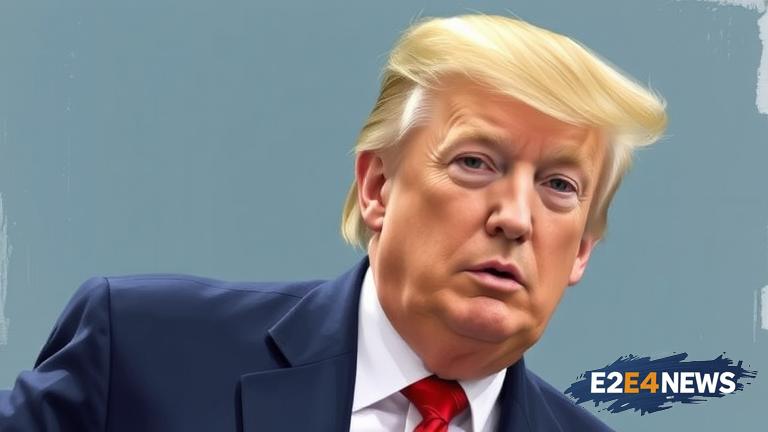Former US President Donald Trump has filed a lawsuit against the publisher of the Wall Street Journal, Dow Jones & Company, over the newspaper’s reporting on his ties to convicted sex offender Jeffrey Epstein. The lawsuit, which was filed in a Florida court, alleges that the Wall Street Journal published false and defamatory statements about Trump’s relationship with Epstein. Trump’s lawyers claim that the newspaper’s reporting was motivated by a desire to harm the former president’s reputation and that it was part of a larger effort to discredit him. The Wall Street Journal has reported extensively on Trump’s connections to Epstein, including a 2019 article that detailed how Trump and Epstein had a closer relationship than the former president had previously acknowledged. Trump has denied any wrongdoing and has said that he was not aware of Epstein’s crimes. However, the Wall Street Journal’s reporting has raised questions about Trump’s judgment and his association with Epstein, who was convicted of sex trafficking and died in prison in 2019. The lawsuit is the latest in a series of legal actions taken by Trump against media outlets and other individuals who have reported on his ties to Epstein. Trump’s lawyers have also sent letters to other news organizations, including the New York Times and CNN, demanding that they retract their reporting on the topic. The Wall Street Journal has stood by its reporting, saying that it is accurate and fair. The lawsuit against the Wall Street Journal is likely to be closely watched, as it raises important questions about the limits of free speech and the role of the media in reporting on public figures. Trump’s lawsuit is also likely to be seen as an attempt to intimidate the media and to discourage reporting on his ties to Epstein. The case is expected to be heard in a Florida court, where Trump’s lawyers will argue that the Wall Street Journal’s reporting was defamatory and that it caused harm to the former president’s reputation. The Wall Street Journal’s lawyers will argue that the newspaper’s reporting was accurate and that it is protected by the First Amendment. The outcome of the case is uncertain, but it is likely to have significant implications for the media and for the public’s right to know about the activities of public figures. The lawsuit is also likely to be seen as part of a larger effort by Trump to shape the narrative around his presidency and to discredit his critics. Trump has a long history of suing his critics and of using the courts to try to silence them. However, the lawsuit against the Wall Street Journal is particularly significant, as it raises important questions about the role of the media in reporting on public figures and the limits of free speech. The case is expected to be closely watched by journalists and by others who are interested in the intersection of media and politics.
Tue. Oct 21st, 2025
